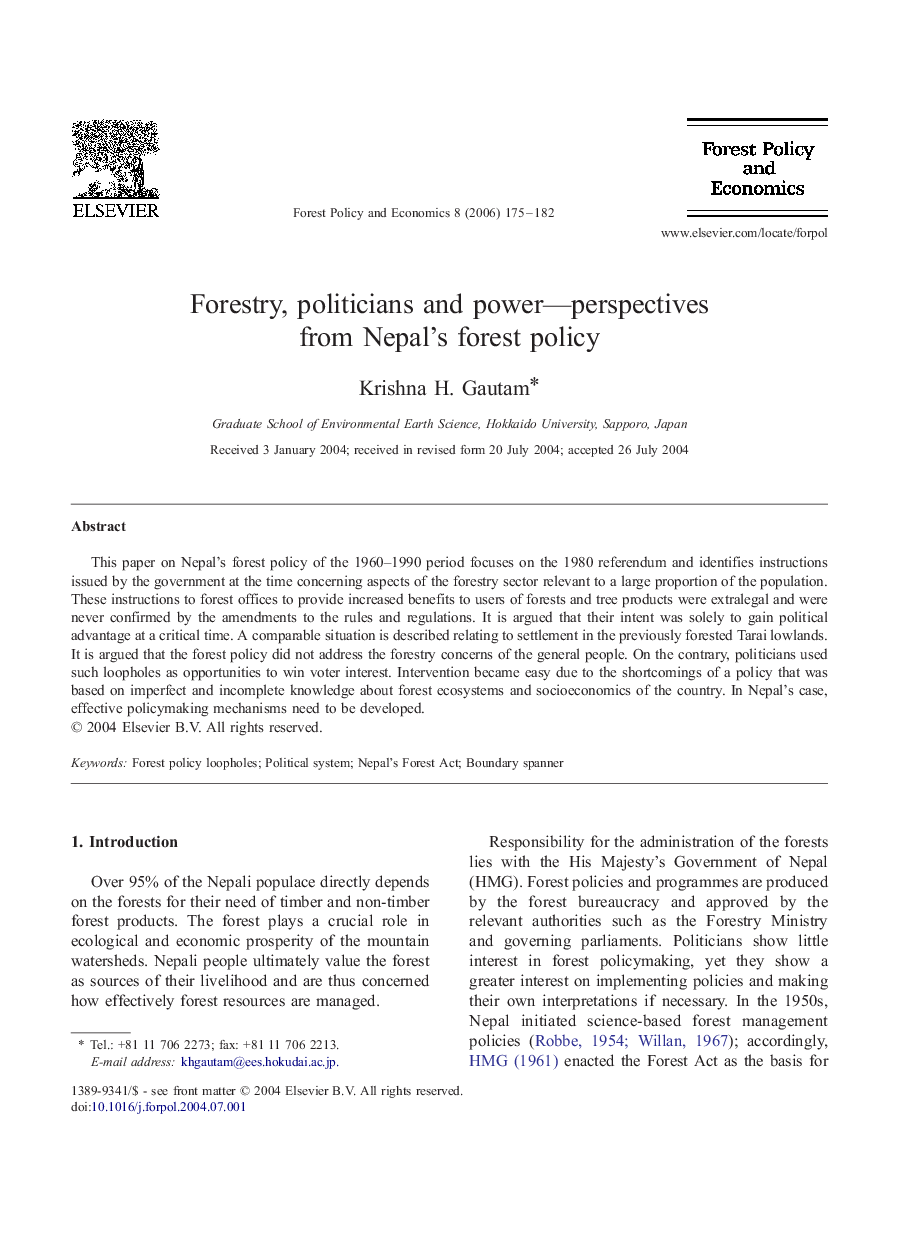| Article ID | Journal | Published Year | Pages | File Type |
|---|---|---|---|---|
| 91562 | Forest Policy and Economics | 2006 | 8 Pages |
This paper on Nepal's forest policy of the 1960–1990 period focuses on the 1980 referendum and identifies instructions issued by the government at the time concerning aspects of the forestry sector relevant to a large proportion of the population. These instructions to forest offices to provide increased benefits to users of forests and tree products were extralegal and were never confirmed by the amendments to the rules and regulations. It is argued that their intent was solely to gain political advantage at a critical time. A comparable situation is described relating to settlement in the previously forested Tarai lowlands. It is argued that the forest policy did not address the forestry concerns of the general people. On the contrary, politicians used such loopholes as opportunities to win voter interest. Intervention became easy due to the shortcomings of a policy that was based on imperfect and incomplete knowledge about forest ecosystems and socioeconomics of the country. In Nepal's case, effective policymaking mechanisms need to be developed.
